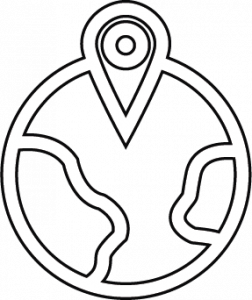Confinement has forced us to modernize our consumption of the digital world. What worked before may no longer have the same results. The amount of time we spend in front of a screen increases day by day. This has generated a proportional increase in the way we search for and acquire goods or services in digital transactions. The world of digital marketing is undoubtedly a cornerstone in today’s society.
2022 promises to be an uncertain year from all points of view, especially from the digital world. It’s important to be aware of what trends are coming in digital marketing and web design.
1. Dynamic content
This trend has been one of the hottest topics of 2021, and it should be prioritized if you have not already done so. Dynamic content provides users with a better experience and incentivizes them by displaying personalized and dynamic information based on their interests, location, and previous browsing activity or purchases.
2. A Hero Image
“Hero Images” (the main image of a web page) have proven to be a great tool to spark initial excitement. We can use images that occupy the entire page to create greater impact. If this resource is well implemented, it can be key to capturing the user’s attention from the first moment.
3. Clean and clear spaces
Current web page designs are easier to read, and most use a minimalist theme. Effective web pages consist of larger and clearer content with direct messages. Avoid distractions and remove any unnecessary elements that can overload the users with information and withdraw their interest.
4. Micro-interactions
Sometimes it all comes down to the details, and micro-interactions are a very interesting resource to generate recall and interest by improving the user’s experience. Implementing short and quick animations that guide users through their interaction with your web page can lead them to complete the desired action.
Some micro-interactions have been a part of our web designs for a long time (for example, links that change color, rollover, or the change of cursor image depending on its location), and now these miniature techniques can be extended to icons and web elements in much more creative ways.
5. Personalized content
In 2022 sites will no longer be considered ‘static’, as we can now use browsing history (with the user’s consent) to deliver content tailored to each user. Now you can go back to a web page you visited before and find a completely different web page with different pieces of information or products. This makes the marketing and sales possibilities opportunities endless.
Personalized content is important for eCommerce sites because brands can focus on products that interest specific users and thus, increase conversions.
6. Dark mode
Continuing with the trend of clean and clear designs: Minimalism reigns in a world of visual darkness. Dark mode considerably reduces the impact on users’ vision making their experience much more pleasant and may help people browse longer. It is one of the key features web designers should implement in the upcoming year. And, it has already been implemented by several social networks and mobile devices.
7. SEO for voice
How users view and browse our pages are important, but we must consider how they access certain pages. The new factors that affect digital marketing also impact web design. One of the most relevant tools that will affect your web design is SEO and the emerging voice search trend. Siri, Alexa, and Google are tools that are becoming increasingly essential in searching for information and content of interest, so it is a crucial point to consider in your web design.
8. Localized SEO and Accessible sites
The localization of current content is a determining factor in SEO optimization. More relevant, responsive searches and easily accessible geography data is fundamental for Google searches.
The reality is that we no longer only use computers to navigate, but many different devices, and we access them in different ways. From SEO by voice search to other accessibility tools designed for people with disabilities, we must adapt these tools into our web pages to ensure a smoother journey for all of our users.
9. Mobile is still king
The vast majority of the population navigates from a mobile device, making mobile-friendly websites very important in 2022. This means building clean, simple designs that users will find easy to access and use (thinking about the “fat finger” syndrome as well as mobile usability). Implementing dynamic scrolling will ensure that your web pages load faster and provide users with a better experience.
10. Interactive content still arouses interest
Interactive content ranges from infographics, branded games and e-books, to interactive emails. We must make sure our consumers don’t get bombarded with endless amounts of information that diverts them from the path we want them to take. How many campaigns have you seen with interactive features such as a branded game using products or discount codes?
Tools such as interactive Q&A’s on social media, polls, and surveys are part of the list of interactive content that keeps people interested. It can also be a clue to let you know as a brand what is trending positively (and what might not be). Ensure that the interactive tools of your choice don’t affect your web page’s speed.
How do I determine which trend will be most effective for my web page layout?
These trends are innovative actions that can contribute to more conversions and sales in the new year. But first, you must establish which trend integrates best with your brand’s marketing objectives to ultimately increase your ROI. To determine what is most suitable, you must keep your objectives in mind and try new things. Understanding your customers will help your brand develop the best strategy, and it is also imperative in deciding which trends you should consider improving your web design in 2022.
If you’re not sure which trends will create the best outcome for your campaigns? Get in touch with us at info@makingscience.com.







 Cookie configuration
Cookie configuration